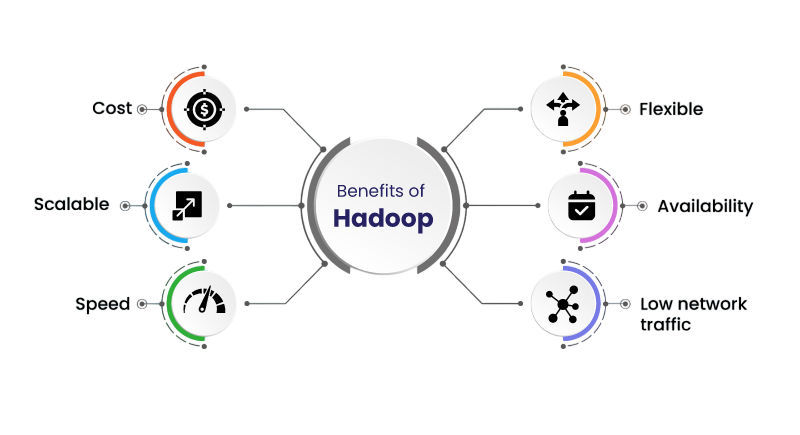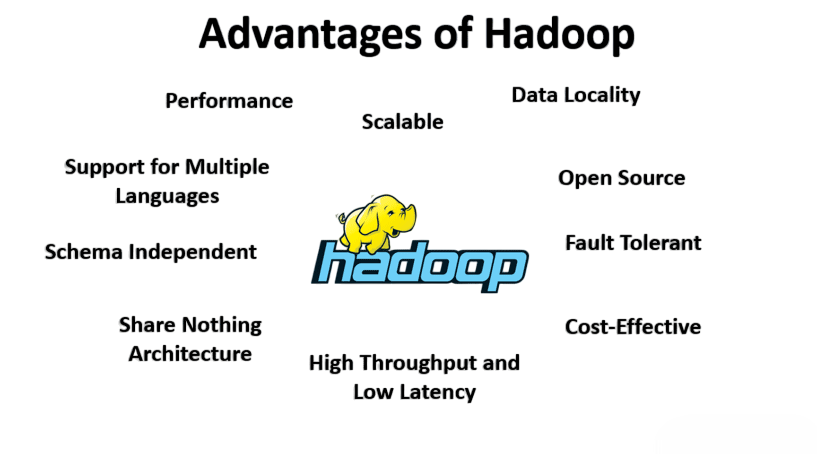
- Introduction to Hadoop Online Training
- Benefits of Virtual Hadoop Learning
- Overview of Hadoop Ecosystem
- Core Components: HDFS, MapReduce, YARN
- Hadoop Installation and Configuration
- Data Processing with Hadoop Tools
- Advanced Hadoop Features
- Real-World Hadoop Use Cases
- Hands-On Projects in Virtual Training
- Conclusion
Introduction to Hadoop Online Training
In today’s data-driven world, professionals and organizations are continuously seeking efficient solutions for processing and managing massive volumes of data. Hadoop has emerged as a cornerstone of big data technologies, allowing for the storage and processing of large datasets across clusters of computers using simple programming models. Hadoop Online Training provides a flexible, accessible way for learners to master this powerful framework from the comfort of their homes. With expert-led virtual classes, hands-on projects, and interactive sessions, learners can grasp complex concepts and acquire practical Data Science Training skills needed for the industry. The online format allows both working professionals and students to upskill without disrupting their daily routines. This guide will walk you through the benefits of online Hadoop training, the structure of the Hadoop ecosystem, core components, practical applications, and how virtual classes can help you become a master in big data processing. Hadoop online training provides flexible, accessible learning for mastering big data management and processing. It covers core Hadoop components through live or recorded sessions, hands-on projects, and certification prep. This virtual format enables learners worldwide to build practical skills and advance careers in data engineering and analytics.
Benefits of Virtual Hadoop Learning
Virtual learning provides several advantages over traditional classroom training, especially when it comes to technology like Hadoop:
- Flexibility and Convenience: Learners can access sessions from anywhere in the world, choosing schedules that suit their personal and professional commitments.
- Cost-Effective: Online courses eliminate travel and accommodation costs, making quality education more affordable Data Architect Salary .
- Interactive Learning Environment: Live virtual sessions include real-time Q&A, collaborative projects, discussion boards, and mentorship support.
- Access to Resources: Learners have access to a wealth of digital materials, recorded sessions, and interactive simulations for continuous learning.
- Hands-On Practice: Cloud-based lab environments allow for real-time hands-on experience using Hadoop tools and datasets.

These benefits make virtual Hadoop training a compelling option for those aiming to enter or grow in the data science and analytics field.
Interested in Obtaining Your Data Science Certificate? View The Data Science Online Training Offered By ACTE Right Now!
Overview of Hadoop Ecosystem
The Hadoop ecosystem is a comprehensive framework designed for storing, processing, and analyzing large datasets across distributed computing environments. At its core, Hadoop consists of the Hadoop Distributed File System (HDFS) for scalable storage and MapReduce for parallel data processing. Surrounding these are essential tools like YARN for resource management, Hive for SQL-like querying, Pig for scripting, HBase for real-time database needs, and Spark for fast in-memory processing. Additionally, tools like Flume and Sqoop facilitate data ingestion, while Oozie manages workflows. Together, these components Cassandra Keyspace create a powerful ecosystem enabling efficient big data solutions across industries. The Hadoop ecosystem is a powerful suite of tools designed to handle big data storage, processing, and analysis across distributed systems. At its core, Hadoop includes HDFS (Hadoop Distributed File System) for reliable data storage and MapReduce for parallel processing. YARN manages resources and schedules tasks, while Hive and Pig provide SQL-like querying and scripting capabilities. HBase offers a scalable NoSQL database for real-time data access, and Spark enables fast in-memory processing. Additional tools like Flume and Sqoop help with data ingestion, and Oozie coordinates workflows.
To Explore Data Science in Depth, Check Out Our Comprehensive Data Science Online Training To Gain Insights From Our Experts!
Core Components: HDFS, MapReduce, YARN
HDFS (Hadoop Distributed File System)
- A distributed storage system designed to store large datasets reliably across multiple machines.
- It breaks data into blocks and replicates them across nodes for fault tolerance and high availability.
- Optimized for high throughput access rather than low latency, making it ideal for big data.
- A programming model used for processing large datasets in parallel across a Hadoop cluster.
- Divides tasks into two phases: Map (processing and filtering data) and Reduce (aggregating results) Kafka vs RabbitMQ .
- Enables scalable, fault-tolerant computation by distributing workloads across nodes.
- Hadoop’s resource management layer that allocates system resources and schedules tasks.
- Separates resource management from data processing to improve cluster utilization and scalability.
- cSupports multiple data processing frameworks beyond MapReduce, like Spark and Tez.
MapReduce
YARN (Yet Another Resource Negotiator)
Hadoop Installation and Configuration
Installing Hadoop can be complex due to dependencies and the need to configure distributed environments. In online training, this is simplified with step-by-step guidance using virtual machines or cloud environments Dedup : Splunk Documentation .
The installation process involves:
- Installing Java and SSH
- Downloading and extracting Hadoop
- Configuring core-site.xml, hdfs-site.xml, mapred-site.xml, and yarn-site.xml
- Formatting the HDFS file system
- Starting Hadoop daemons (NameNode, DataNode, ResourceManager, NodeManager)
Virtual classes often provide pre-configured environments or Docker-based setups to reduce setup time and focus on learning.
Gain Your Master’s Certification in Data Science Training by Enrolling in Our Data Science Master Program Training Course Now!
Data Processing with Hadoop Tools
- MapReduce: Processes large datasets by dividing tasks into map and reduce phases for parallel computation.
- Apache Hive: Provides SQL-like querying on Hadoop data, simplifying data analysis for users familiar with SQL.
- Apache Pig: Uses a scripting language (Pig Latin) for data transformation and processing on Hadoop.
- Apache Spark: Offers fast, in-memory data processing for batch and real-time analytics Data Science Training.
- Apache Flink: Supports real-time stream processing with low latency and high throughput.
- Apache Storm: Enables distributed real-time computation for streaming data processing.
- Sqoop & Flume: Tools for importing/exporting data and collecting real-time data streams into Hadoop.
Advanced Hadoop Features
As learners progress, they explore advanced topics such as:
- Cluster Management: Monitoring nodes, resource allocation, and job scheduling.
- Performance Tuning: Optimizing MapReduce jobs, caching strategies, and memory allocation.
- Security: Implementing Kerberos authentication, encryption, and authorization in Hadoop clusters.
- Data Governance: Integrating Hadoop with Apache Atlas for metadata management.
- Integration with Spark: Using Apache Spark on Hadoop for faster in-memory computation.

These advanced skills are essential for working in enterprise environments where efficiency, security, and scalability are critical What is Data Pipelining.
Are You Preparing for Data Science Jobs? Check Out ACTE’s Data Science Interview Questions and Answers to Boost Your Preparation!
Real-World Hadoop Use Cases
Hadoop has become a cornerstone technology for organizations dealing with massive amounts of data, enabling them to store, process, and analyze information at scale. In the retail industry, Hadoop helps businesses analyze customer behavior and preferences to personalize marketing campaigns and optimize inventory management. Financial institutions use Hadoop to detect fraudulent transactions and manage risk by processing vast datasets quickly. Healthcare organizations leverage Hadoop to analyze medical records and research data, improving patient outcomes through predictive analytics. In telecommunications, Hadoop supports network optimization and customer experience enhancements by processing call data and What is Splunk Rex usage patterns. Media and entertainment companies use Hadoop to analyze viewer data and improve content recommendations. Additionally, government agencies rely on Hadoop for large-scale data analysis to improve public services and security. These real-world applications showcase Hadoop’s versatility and its critical role in driving data-driven decision-making across diverse sectors. Case studies and capstone projects in online training often reflect such real-world scenarios, helping learners prepare for job roles directly.
Hands-On Projects in Virtual Training
A hallmark of quality Hadoop online training is the inclusion of practical, hands-on projects. These projects simulate real-world challenges and solidify understanding.
Typical hands-on projects include:
- Building a data pipeline using Flume and HDFS
- Analyzing web server logs using Pig and Hive What is Azure Data Lake
- Integrating Hadoop with Spark for data transformation
- Importing data with Sqoop from MySQL and analyzing in Hive
Such projects often include datasets from open data sources like Kaggle, AWS, or government portals, providing students with the experience they need for interviews and workplace readiness.
Conclusion
Hadoop online training equips learners with the skills needed to handle big data challenges using a flexible, interactive, and practical approach. Whether you are a student, a software developer looking to switch to data engineering, or an IT professional seeking to expand your expertise, mastering Hadoop through virtual classes is a smart investment in your future. With a well-structured curriculum Data Science Training , hands-on experience, and expert mentorship, you can gain the confidence to work on enterprise-level data problems, pass global certifications, and land high-paying roles in the data ecosystem. Embrace the future of data with Hadoop online training and be the master of your data destiny.


